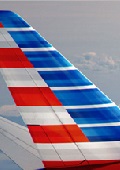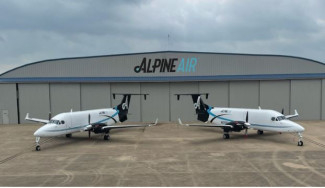Airline Security in 2007
During pilot training, we often hear the words complacency kills to describe scenarios in which pilots were not alert or in tune with the aircraft. These events can lead to catastrophic accidents. As a former fighter pilot, I and others would sometimes joke about being behind the aircraft or barely hanging on to the tail a euphemisms to show that mentally we were not caught up to the dynamic environment in which we were operating.
Keeping our aircraft secure parallels our safety objectives in almost every aspect. The farther we drift away from 9/11, the easier it is to be more complacent about this important subject matter.
Security experts will tell you that the only three times you can lose a gunfight is before, during, or after. In other words, you must be prepared, you must act in conjunction with your training, and you must follow through.Today, I would like to discuss being prepared.
Clearly, the most important aspect of preparation is mental acuity. From my experience working security-related issues, terrorists generall yrely on someone not doing their jobs completely to complete their mission. We have excellent layers of security in place for the passenger aircraft industry, but there are human factors which drive the effectiveness of each one. Stay alert! If you feel something is no tright, speak up! Tell someone.
The Federal Air Marshal Service (FAMS), whose sole purpose is to protect our transportation infrastructure, has set up an easy way to report suspicious activity. Go to [email protected] Your reports will be read and acted upon.
I highly encourage crew members to get some training. Someone could write article after article about various self-defense systems and martial arts disciplines, and still not cover the subject matter completely. There are experienced instructors available to just about anyone who lives in a populated area. My only advice is to consider the environment in which you operate. Crew members working small areas and cramped conditions, so focusing on close quarters maneuvering is important.
Also, remember the TSA has done the work for you in this regard as well.The TSA Crew member Self-Defense Training has been updated by the FAMS Defensive Tactics Instructors. I have worked with these professionals on a number of occasions, and I can say that they are arguably the finest in the industry. For more information, reference www.tsa.gov/cmsdt.
Lastly, for those pilots who are inclined, consider the Federal Flight Deck Officer (FFDO) program. FFDOs are deputized law enforcement officers who are trained to protect the flight deck. For more information, go to http://www.tsa.gov/lawenforcement/programs/ffdo.shtm.
In closing, at a recent industry meeting, a high level government security expert was briefing our group about terrorism and re-emphasized what we all know is true. It is not a matter of IF it will happen, only WHEN it will happen. We are still being targeted. There are plans in place.
Are you ready?
First Officer Bill Cason is the Chairman of the Independent Pilots Associations Security and Cockpit Defense Committee, as well as the Coalition of Airline Pilots Associations Cockpit Defense Team for Cargo. Bill is a former Federal Agent who worked directly with an FBI Counterterrorism Squad after 9/11.
-

Airshare 07/22/2024
-
Alpine Air 07/18/2024
-

Atlas Air 07/17/2024
-

Piedmont Airlines 07/10/2024
-

SkyWest 07/09/2024
 AIRLINE PILOT CENTRAL
AIRLINE PILOT CENTRAL